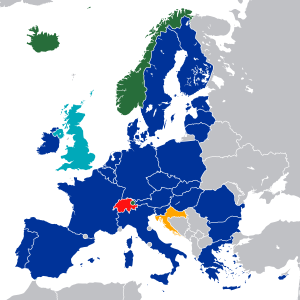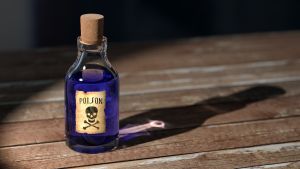Difference between revisions of "Main Page"
(+link) |
|||
| (10 intermediate revisions by the same user not shown) | |||
| Line 3: | Line 3: | ||
<div id="mp-welcomecount"> | <div id="mp-welcomecount"> | ||
<div id="mp-welcome">[[File:CE-Logo - Experts in CE Marking.png|center|upright=10|mailto:info@ce-logo.com]] | <div id="mp-welcome">[[File:CE-Logo - Experts in CE Marking.png|center|upright=10|mailto:info@ce-logo.com]] | ||
</div> | |||
</div> | </div> | ||
<ul id="mp-portals"> | <ul id="mp-portals"> | ||
<li>[[ | <li>[[Product Safety]]</li> | ||
<li class="portal-vmid">[[Machinery]]</li> | <li class="portal-vmid">[[CE Marking of Machinery|Machinery]]</li> | ||
<li class="portal-vbot">[[Low Voltage]]</li> | <li class="portal-vbot">[[CE Marking of Low Voltage Equipment|Low Voltage]]</li> | ||
<li class="portal-hmid">[[EMC]]</li> | <li class="portal-hmid">[[CE Marking for Electromagnetic Compatibility|EMC]]</li> | ||
<li class="portal-hmid portal-vmid">[[Radio equipment]]</li> | <li class="portal-hmid portal-vmid">[[CE Marking of Radio equipment|Radio equipment]]</li> | ||
<li class="portal-hmid portal-vbot">[[RoHS]]</li> | <li class="portal-hmid portal-vbot">[[RoHS Directive|RoHS]]</li> | ||
<li class="portal-hright">[[PPE]]</li> | <li class="portal-hright">[[CE Marking of Personal Protective Equipment|PPE]]</li> | ||
<li class="portal-hright portal-vmid">[[Ecodesign]]</li> | <li class="portal-hright portal-vmid">[[CE Marking for Ecodesign|Ecodesign]]</li> | ||
<li class="portal-hright portal-vbot">[[All norms]]</li> | <li class="portal-hright portal-vbot">[[Norms about CE Marking|All norms]]</li> | ||
</ul> | </ul> | ||
</div> | </div> | ||
| Line 26: | Line 24: | ||
{| role="presentation" id="mp-upper" | {| role="presentation" id="mp-upper" | ||
| id="mp-left" class="MainPageBG mp-bordered" | | | id="mp-left" class="MainPageBG mp-bordered" | | ||
<h2 id="mp-tfa-h2" class="mp-h2">About | <h2 id="mp-tfa-h2" class="mp-h2">About us</h2> | ||
<div id="mp-tfa"> | <div id="mp-tfa"> | ||
{{CE-Logo:What we do}} | {{CE-Logo:What we do}} | ||
| Line 32: | Line 30: | ||
<h2 id="mp-dyk-h2" class="mp-h2">About CE Marking</h2> | <h2 id="mp-dyk-h2" class="mp-h2">About CE Marking</h2> | ||
<div id="mp-dyk"> | <div id="mp-dyk"> | ||
[[File: | {{CE marking}} | ||
</div> | |||
| class="mp-bordered mid-table" | | |||
| id="mp-right" class="MainPageBG mp-bordered" | | |||
<h2 id="mp-itn-h2" class="mp-h2">Blog</h2> | |||
<div id="mp-itn"> | |||
'''[[The importance of RoHS Directive: how restricted substances can affect the workers and consumers health]]''' | |||
[[File:Toxic substance.jpg|thumb|Toxic substances can be found almost everywhere. RoHS Directive plays a fundamental role in CE marking to minimize the risk of use of hazardous substances in electrical and electronic equipment (EEE).]] | |||
With the ever-growing industrial development, lots of natural or synthetic substances are constantly introduced in the manufacturing of various products. Some of these substances can constitute a [[workplace hazard]] or a [[hazard to the consumer]]. | |||
For this reason, it was introduced the so called “[[RoHS Directive]]”, where “RoHS” stands for “''Restriction of the use of Hazardous Substances''”. It limits the use of certain hazardous substances in electrical and electronic equipment. | |||
RoHS Directive indicates when the same directive is applicable. In case of applicability, the compliance to RoHS Directive: | |||
* | * <u>is mandatory for CE Marking</u>, | ||
* | * <u>must be accomplished by manufacturer in a proper way</u> (e.g.: by product control and testing), | ||
* | * and <u>must be indicated by law in the [[EU Declaration of Conformity]]</u> of the product. | ||
With the latest modifications of the RoHS regulation, the number of these restricted substances (some of which are actually “classes of substances”) is ten, and they are precisely: lead, mercury, cadmium, hexavalent chromium, polybrominated biphenyls (PBB), polybrominated diphenyl ethers (PBDE), bis(2-ethylhexyl) phthalate (DEHP), butyl benzyl phthalate (BBP), dibutyl phthalate (DBP) and diisobutyl phthalate (DIBP). | |||
Staying within safety limits of use of these substances in various products is of the utmost importance to avoid such [[health hazards]]. It is also necessary to use the appropriate [[Personal protective equipment|protective equipment]] in workplaces, and to dispose properly of factory wastes in order to prevent environmental contamination. | |||
To better understand the importance for manufacturers to follow the RoHS Directive, and for consumers to buy RoHS compliant products, where applicable, let see where these restricted substances can be found, how they can enter the human body, and how they affect a person’s health... | |||
:[[The importance of RoHS Directive: how restricted substances can affect the workers and consumers health|(read more...)]] | |||
---- | |||
Read also: | |||
* [[CE Marking... yes or no?]] | |||
</div> | </div> | ||
<h2 id="mp-otd-h2" class="mp-h2">Selection of our clients</h2> | <h2 id="mp-otd-h2" class="mp-h2">Selection of our clients</h2> | ||
<div id="mp-otd"> | <div id="mp-otd"> | ||
| Line 79: | Line 88: | ||
File:Going up arrow and graph.png|Ecodesign and Energy Labeling | File:Going up arrow and graph.png|Ecodesign and Energy Labeling | ||
File:Textile label.png|Textile Label Design and Conformity | File:Textile label.png|Textile Label Design and Conformity | ||
File:Certificate icon.png| | File:Certificate icon.png|[[EU Declaration of Conformity]] | ||
</gallery> | </gallery> | ||
</div> | </div> | ||
Latest revision as of 22:27, 15 January 2023
About usHow we help manufacturers, distributors and importers: We offer consulting on CE marking to manufacturers, distributors and importers. This also includes:
How we help customers: In addition to indirectly helping consumers by offering advice to manufacturers to market safe products, we provide support to consumers by providing them with information about the meaning of the CE marking and useful advice on how to choose compliant and therefore safer products. About CE MarkingThe CE marking is a mandatory process required by law by the specific Directives of the European Community (EC Directives) to be able to market, import and / or distribute the categories of products indicated in the same directives within the European Economic Area (EEA), regardless of where the product was manufactured. More precisely, CE marking rules are mandatory in:
This means that both manufacturers and distributors are obliged to follow this process, called "CE marking", which is aimed at ensuring that the products in question are "safe" for the final consumer. Regulated products also include: electrical and electronic equipment (EEE), radio and telecommunications equipment, machines and assemblies of machines, medical devices, toys, building materials, fixtures, pressure vessels, gas appliances, safety devices, etc. The CE marking, unlike what the name might suggest, is a particularly articulated process, which goes beyond the mere compilation of a technical file or the affixing of the so-called "CE mark" on the product label. It includes in fact a necessary analysis of the safety risks, evaluation of results, identification and adoption of technical and organizational security measures, periodic review of information relating to the safety of the product and of each individual component, etc. Added to this is compliance with certain international standards ("harmonised standards"), and often also the intervention of a notified body (NB) and the carrying out of laboratory tests on the product to guarantee its safety characteristics. Be aware that the mere affixing of the CE mark without complying with all the other obligations constitutes a crime and seriously endangers the safety of consumers and beyond. At this regard, our team is ready to help manufacturers and customers in order to better understand CE marking process and to give consultancy services when needed.
|
BlogWith the ever-growing industrial development, lots of natural or synthetic substances are constantly introduced in the manufacturing of various products. Some of these substances can constitute a workplace hazard or a hazard to the consumer. For this reason, it was introduced the so called “RoHS Directive”, where “RoHS” stands for “Restriction of the use of Hazardous Substances”. It limits the use of certain hazardous substances in electrical and electronic equipment. RoHS Directive indicates when the same directive is applicable. In case of applicability, the compliance to RoHS Directive:
With the latest modifications of the RoHS regulation, the number of these restricted substances (some of which are actually “classes of substances”) is ten, and they are precisely: lead, mercury, cadmium, hexavalent chromium, polybrominated biphenyls (PBB), polybrominated diphenyl ethers (PBDE), bis(2-ethylhexyl) phthalate (DEHP), butyl benzyl phthalate (BBP), dibutyl phthalate (DBP) and diisobutyl phthalate (DIBP). Staying within safety limits of use of these substances in various products is of the utmost importance to avoid such health hazards. It is also necessary to use the appropriate protective equipment in workplaces, and to dispose properly of factory wastes in order to prevent environmental contamination. To better understand the importance for manufacturers to follow the RoHS Directive, and for consumers to buy RoHS compliant products, where applicable, let see where these restricted substances can be found, how they can enter the human body, and how they affect a person’s health...
Read also: Selection of our clients
|
Our services
Contacts




